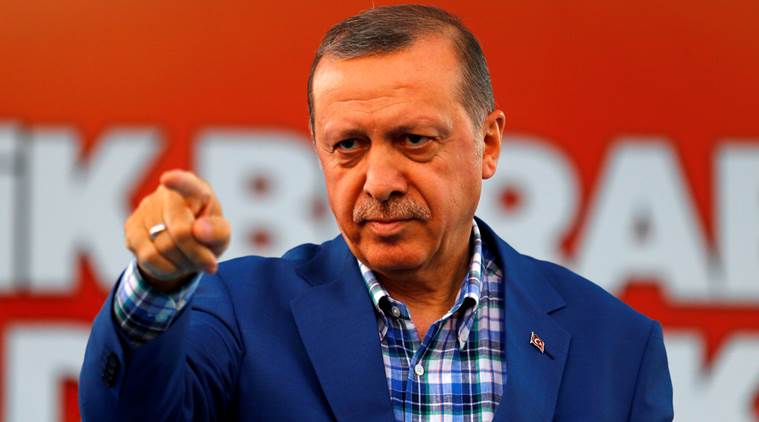
Turkey’s Insecurity Stems from AKP’s Wrong Policies
TEHRAN (Basirat)- Although Erdogan is trying to blame US-based opposition figure Fethullah Gulen, Kurdistan Workers' Party (PKK) and Daesh for all the crises and security problems in Turkey, but the reality is that all Turkey’s security problems stem from the government’s wrong policies.

Although Erdogan is trying to blame US-based opposition figure Fethullah Gulen, Kurdistan Workers' Party (PKK) and Daesh for all the crises and security problems in Turkey, but the reality is that all Turkey’s security problems stem from the government’s wrong policies.
By Dr. Shuaib Bahman
Since ruling Justice and Development Party (AKP) swept to power in 2002, Turkey has experienced two rather different eras. In the first era, it experienced a period of stability and security due to the right policies adopted by the AKP. But in the second era, which almost began in 2010 simultaneously with the intensification of developments in the Middle East, Turkey fell into a trap of insecurity as a result of AKP’s incorrect and partially wrong policies. Turkey itself is now turned into one of the crisis-making factors both inside and outside the country by adopting ill-considered decisions and measures.
A brief look at the internal and external policies adopted by the government of Turkish President Recep Tayyib in recent years show that the AKP’s policies and approaches have played a key role in creating political division within the country and also radicalizing the Turkish community. Accordingly, it can be predicted that Turkey will face minor and major internal difficulties in coming years if it does not change its strategy.
Nevertheless, policies implemented by the Turkish government toward its internal security is an issue that cannot be excluded from Ankara’s foreign policy. In fact, Ankara’s domestic and foreign polices affect one another willy-nilly. Therefore, if territorial integrity and political system, economic foundation and social solidarity, ideology and sovereign prestige and environmental issues are considered indices of national security, Turkey will face challenges in the future. As an example, the protracted war in Syria and the issue of Kurds in Turkey can bring about change for Turkey's political system and Such crises can influence Turkey’s foreign policy as well.
As an example, despite the fact that Ankara has always been against Russia’s military presence in Syria, it has paved the way for stronger presence of Russian forces in the region two times.
Moscow-Ankara ties strained last November after Turkey shot down a Russian Sukhoi Su-24 aircraft with two pilots aboard, claiming the fighter jet had repeatedly violated the Turkish airspace. The move by Ankara for the first time increased Moscow’s motivation to continue its anti-terror campaign in the region. Meanwhile, it seems that the assassination of Russia's ambassador to Turkey on Monday could be the second opportunity given to Russia by Turkey by mistake because repercussions of the killing could have a major impact on Russia’s future decisions about the Middle East region.
If Russian expert team makes a link between the killing and the Turkish government as well as the country’s intelligence centers, then Moscow would deal a decisive blow to Ankara via asymmetric methods. Likewise, if the Russians make a link between the killing and Takfiri terrorists, then Moscow would be more resolved to fight against terrorism and extremism.
Moreover, the Russians will never forgive the Turkish government for its negligence in protecting their envoy. Whoever or whatever organization is behind the attack, the ultimate blame lies with the Turkish government in view of Moscow as Erdogan failed to protect the life of a diplomat who was under its responsibility.
The Turkish government’s inability to establish domestic security, which has also influenced its foreign policy, can seriously affect Erdogan’s future decisions. Although he is trying to blame US-based opposition figure Fethullah Gulen, Kurdistan Workers' Party (PKK) and Daesh for all the crises and security problems in Turkey, but the reality is that all Turkey’s security problems stem from the government’s wrong policies. Therefore, as long as these policies are not rectified, Turkey will not be able to rid itself from insecurity both inside and outside the country.















